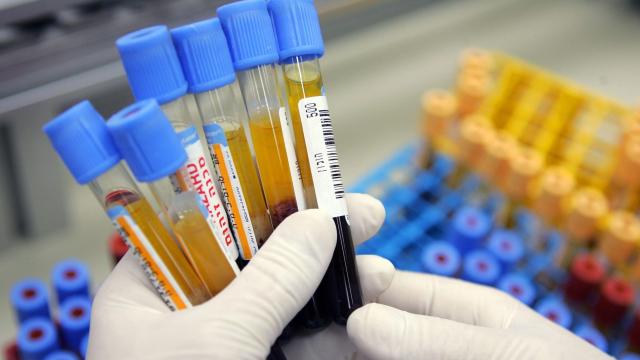New research this week offers hope that we may one day be able to create a powerful weapon against coronaviruses like the one that causes covid-19. In survivors of the original 2002-2004 SARS outbreak who were given a covid-19 vaccine, researchers found potent antibodies capable of neutralising a variety of coronaviruses, including the classic SARS virus and worrying variants of SARS-CoV-2 like Delta. These findings could point to the way toward a future vaccine that can broadly protect us against this group of viruses altogether, the scientists say.
The SARS outbreak originated in China and sickened people in several countries between 2002 and 2004. Though it was contained before it spread widely across the globe, more than 8,000 people were sickened by it and about 800 died as a result. Scientists have been tracking the survivors of SARS ever since, hoping to better understand the nature of coronaviruses that could be capable of causing the next major pandemic. Unfortunately, as we all know now, that suspicion turned out to be right on the money, and we’re currently in year two of the covid-19 pandemic, caused by SARS-CoV-2.
SARS and SARS-CoV-2 are both part of a lineage known as sarbecoviruses. And many of the early insights we had into the workings of the novel coronavirus were gleaned from studying people who survived SARS. One promising implication from this research, for instance, is that natural infection from SARS-CoV-2 could provide years, even decades, of long-lived immunity for most survivors — something seen in survivors of SARS.
This immunity to SARS doesn’t seem to translate over to strong immunity to SARS-CoV-2, though. So survivors of the former have been getting vaccinated for covid-19. And that gave the researchers behind this study, published Wednesday in the New England Journal of Medicine, the opportunity to compare their immune responses to the vaccine to those of people who never had SARS.
They studied the blood of vaccinated SARS survivors (health care workers in Singapore), unvaccinated SARS survivors, vaccinated survivors of covid-19, and uninfected people who got fully vaccinated. The vaccine used was the Pfizer/BioNTech mRNA vaccine, one of the most effective covid-19 vaccines available. This blood was tested against 10 different sarbecoviruses, which included the SARS virus, the original SARS-CoV-2 and its variants, as well as related coronaviruses found in bats. Of all of the groups, only the blood of vaccinated SARS survivors had a potent antibody response to all 10 viruses, based on the team’s newly developed tests. Moreover, the strength of this response seemed to be strong across all the viruses.
Scientists are currently trying to develop the next generation of covid-19 vaccines, capable of providing immunity to all known and potential variants. But the authors say their work could help scientists develop the third generation of covid-19 vaccines, one capable of neutralising sarbecoviruses in general. This could not only cover SARS-CoV-2 but the next SARS-related virus that threatens to jump into humans. From there, we may even one day have a broad vaccine for all coronaviruses, including those known to cause the common cold. By studying the broadly neutralising antibodies isolated from these vaccinated SARS survivors, the researchers add, we could also develop potent treatments in time for the next major coronavirus epidemic.
“These findings show the feasibility of a pan-sarbecovirus vaccine strategy,” the authors wrote.
All this is hopeful speculation right now, of course. The findings are based on a small sample size, with only eight vaccinated SARS survivors included in the study. So they shouldn’t be taken as incontrovertible proof that these individuals now have super-immunity to coronaviruses past and present. Immunity is also notoriously more complicated than simply having the right antibodies, and we’re not quite at the point where we can easily look at someone’s blood tests and determine their level of immunity precisely. The authors also admit that more work has to be done to tease out how and why these vaccinated survivors are creating these seemingly super-antibodies and the best way to elicit them from the vast majority of people never exposed to SARS at all. But despite all these challenges, there’s at least reason to be optimistic.
